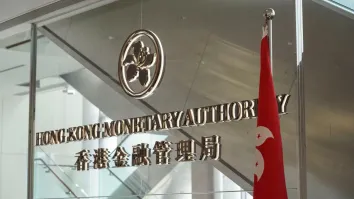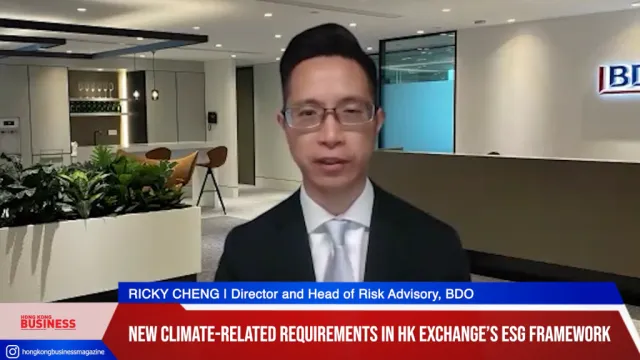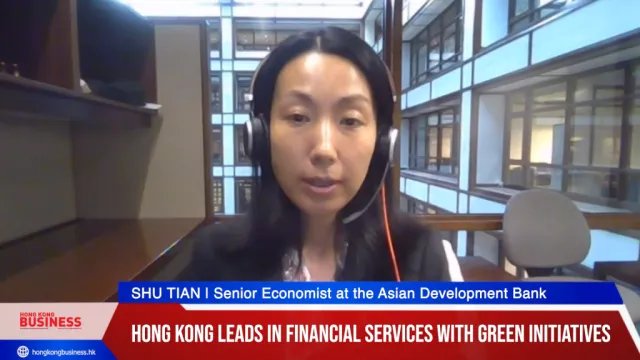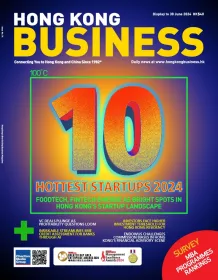
EY partner identifies challenges that businesses face this year and post-pandemic
Jacky Lai underscores quality audits as key to help clients better understand business processes and inspire confidence in capital markets.
Jacky has over 24 years of professional experience in initial public offerings (IPO), including assisting state-owned enterprises with restructuring and advising on cross-border listing procedures. He has worked with clients from the environmental, energy, retail, and consumer products industries, as well as food and beverage, construction, garments, and electronics manufacturing.
As an Assurance Partner for EY, he provides assurance and advisory services to multinational and domestic companies in the areas of international and Hong Kong financial reporting standards, and IPOs.
At this interview, Jacky explains how technology and optimizing data assets can deepen stakeholder trust and bring audits to be at par with world-class standards.
How can businesses enhance the quality of audits in these fast-changing times, especially with implementation of technology?
As their activities become increasingly dependent on digital technologies, companies in every sector are generating and gathering ever-increasing quantities of data. The potential to create new forms of value from these data assets, as well as to transform or protect current business models, was widely acknowledged even before the COVID-19 pandemic has accelerated digitalization. Digital transformation can create entirely new business models, such as the online data-driven platforms that transformed the markets for short-term accommodation and taxi services.
These five elements – value proposition, business model, intelligence, data and technology platform – are linked and validated by the sixth element which is essential: trust. Companies that aim to digitalize in this way must design every part of their intelligent value chain in a way that creates and promotes trust among their stakeholders, so that everything created along the value chain can be trusted.
This digital transformation of the corporate world has profound implications for audit professionals. Evolving business models, the digitalization of companies’ operations and the ability for auditors to gather and analyze huge quantities and depth of digital information further change the way audits are carried out.
As they digitalize, the businesses of audited companies are transforming to resemble increasingly fluid ecosystems in which value chains are broken up, with key elements sourced in real time from external service providers and sub-service providers. Corporate distribution channels are also extending and diversifying across B2B, B2C and B2B2C. The key will be the ability to embed trust across these ecosystems. Arguably the biggest question will be where the boundaries of the scope of the audit will lie in the future.
There is also clear potential for data-driven processes to increase trust in the audit process and to expand trust by, for example, providing assurance over the security and privacy of IoT data captured and processed by an audited entity. Becoming more data-driven will also allow auditors to demonstrate how they have reached their conclusions, providing far greater transparency for stakeholders. However, this increase in trust is only possible when auditors document clearly which data they have accessed, checks they have made, processes they have followed and technology they have used, so that an independent third party can clearly understand how the audit was carried out.
Similarly, over-reliance on technology to carry out the audit would be a dangerous mistake. Technology can undoubtedly improve the speed and accuracy of the audit, but they cannot be expected to replace the professional judgment of an experienced auditor. Processes put in place by the audit teams must be robust enough to allow for the risk of technology failing. Auditors will still need to confirm internal control systems, carry out independent valuations and apply professional skepticism. However, applying data analytics where appropriate should enable them to focus on areas where their professional skills are most valuable.
What sustainable and long-term value can quality audits provide to clients and society as a whole?
Audit clients operate in a complex and fast-moving business environment, where they are not only addressing the changing demands of their customers, employees and other stakeholders, but also facing disruption brought on by geopolitics, trade disputes, new technologies and business models, and, recently, a global pandemic. Quality audits support clients’ transformation by helping clients better understand their business processes, benchmarking with world class practice, and connection with specialists with different skills (tax, valuation, ESG advice and due diligence, etc.) with solutions to the challenges.
Auditors also has the role to serve the public interest and provide confidence to the capital markets by providing high-quality audits.
In addition, the promotion of ESG topic to the board members through quality audit process has accelerated the building of better corporate governance for long-term value creation. First, it raised the expectations of stakeholders – including employees and the wider public – for organizations to play a more active role in tackling major societal issues, such as inequality and climate change. And second, it made CEOs and boards question and change the role of their organizations in terms of who they are serving, the contribution they can make to society, and what constitutes value.
Business leaders are increasingly realizing success requires a multi-stakeholder, long-term orientation. Sustainable corporate governance is a key enabler to embed a long-term focus – and one that is within their control to change.
One of the key governance-related areas to ensure both short- and long-term needs are balanced is to provide authenticity, i.e. transparent and authentic reporting disclosures with quality audits on the progress against long-term value goals and key performance indicators (KPIs), with clear accountability.
You were part of the judging panel last year. Compared with last year’s judging experience, what challenges do you think will the potential awardees face this year to meet the awards criteria?
Enterprises are entering into a stage of post-COVID with the new normal. Capital and talent shift from organizations that create value only for their shareholders to those that create value in the long term, across a broader group of stakeholders, including employees, consumers, society and shareholders. As the new normal emerges, globalization, climate change, income inequality, inclusivity, the ethics of artificial intelligence (AI) and other huge economic and societal issues will again dominate the agenda, and businesses leaders will be expected to play a vital role in addressing each of them properly.
How has the mass exodus of Hong Kong residents changed the local business or economic landscape thus far? How can the local business and economy stay resilient in this scenario? For the finance industry, are there specific measures being planned or applied to mitigate the effects of this exodus?
In recent years, the Greater Bay Area (GBA) development is accelerating. The newly announced expansion of the Qianhai economic cooperation zone in Shenzhen calls for further open up the financial sector and liberalize the service trade, including supporting more cross boarder securities investment, and experimenting with links to Hong Kong’s financial market. Together with the Hengqin plan announced earlier, these expansion plans fuel the further integration of Hong Kong and Macau’s economies into the GBA.
The GBA is now a prime destination for talented individuals and growing business seeking to pursue new opportunities. It is expected to see a higher degree of mobility across the region. The GBA talent landscape is the new challenge now for enterprises to develop the best talent acquisition strategy, including the effective virtual working arrangement and deep integration with the GBA talent pool.
The views reflected in this article are the views of the author and do not necessarily reflect the views of the global EY organization or its member firms.



















 Advertise
Advertise






